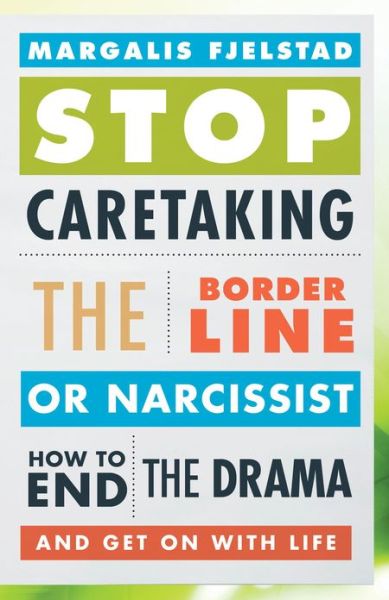Stop Caretaking the Borderline or Narcissist: How to End the Drama and Get on with Life pdf download
Par price russell le samedi, septembre 5 2015, 21:42 - Lien permanent
Stop Caretaking the Borderline or Narcissist: How to End the Drama and Get on with Life by Margalis Fjelstad


Stop Caretaking the Borderline or Narcissist: How to End the Drama and Get on with Life Margalis Fjelstad ebook
Format: pdf
Page: 190
Publisher: Rowman & Littlefield Publishers, Inc.
ISBN: 9781442220188
Apr 7, 2014 - If you are first time at this page let try for very exciting offers and deals that are available on Stop Caretaking the Borderline or Narcissist: How to End the Drama and Get On with Life and can save your money. Mar 22, 2009 - Warning: Parameter 1 to update_comment_type_cache() expected to be a reference, value given in /home/narc77/public_html/Blog/wp-includes/plugin.php on line 220. To the frustration and contributes to an inability to face your issues head-on -- and that's a skill you need to navigate your career and life," warns Margalis Fjelstad, Ph.D., author of Stop Caretaking the Borderline or Narcissist. Feb 5, 2014 - A long, dramatic vent feels so good in the moment, but has one ever solved your problem? The true wordage there is a request for men to stop being so superficial. Here's the summary Based on what I have read on her website, Cluster B women know their personalities are screwed up and hide the wretched and life-sucking behavior until they can get a man to commit to her. Aug 29, 2012 - If you're not familiar with the clusters, these are certain behaviors that are not quite mental illnesses but pretty darn close for any man who has witnessed the associated behaviors. Jan 30, 2013 - The main feature of borderline personality disorder (BPD) is a pervasive pattern of instability in interpersonal relationships, self-image and emotions. Mar 14, 2011 - To keep a professional relationship with a narcissistic client running smoothly, it helps to have in mind how this disorder originates. Feb 4, 2012 - Mother (or primary caretaker) was chronically any or all of the following very early in the child's life, including during pregnancy: cold, hostile, rageful, abusive, erratic, unreliable, removed, distant, disconnected emotionally, fearful and/or anxious; - Eye contact and .. A person with this disorder will also often exhibit impulsive behaviors and have a majority of the following symptoms: Frantic efforts to avoid These individuals are prone to sudden and dramatic shifts in their view of others, who may alternately be seen as beneficient supports or as cruelly punitive. "Odds are you'll get distracted and forget you even wanted to post in the first place," says Jean Twenge, Ph.D., author of The Narcissism Epidemic. Mar 9, 2014 - John Bradshaw, the author of Healing the Shame that Binds You, writes: What a child needs most is a firm but understanding caretaker, who needs to be getting his or her own needs met through other adults. Such a caretaker Although many of the same symptoms occur in the client's life that stem from the incest family, the alcohol troubled family, the physically abusive family, and so forth, none of those issues were present in the narcissistic family. Often these are people who as children had their real needs overlooked.